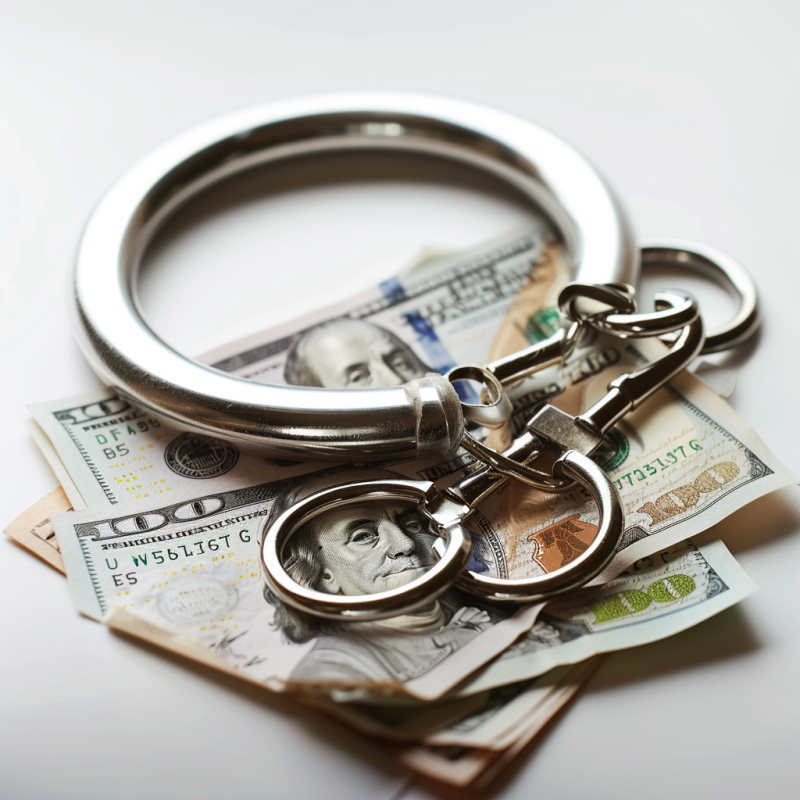
Collateral Acceted for Bail Bonds
Finding out that you or someone you care about is in jail can be really frightening. The main goal is to get them out of that cold, scary cell and back home as soon as possible. But gathering a large amount of money for bail quickly isn’t easy.
That’s where bail bonds come in. Usually, you only need to pay a bail agent a small percentage of the total bail amount, usually 10-15%. But the bail bond company needs to be sure they won’t lose their money if the person skips their court dates.
So, what can you use as collateral if you don’t have enough cash? There are several options. Let’s explore the main assets that bail bond agents accept:
Your House
For large bail amounts, real estate is one of the best types of collateral. This can include houses, condos, land, or commercial buildings. Your home’s equity can be a huge help, but it must meet some requirements:
- Plenty of Equity: You can’t owe more on your mortgage than the house is worth.
- Proof of Ownership: You need documents like deeds, property records, and tax papers to prove you own it.
- No Liens: Any outstanding debts tied to the property must be cleared.
- Location: Properties close by are preferred, as far-off properties are harder to manage.
Handing over the deed means the bail agents can take your house if you skip court. It’s smart to talk to a lawyer before using your house as collateral.
Vehicles
Vehicles like cars, trucks, boats, motorcycles, ATVs, and RVs can also be great collateral. However, your vehicle needs to meet these conditions:
- Full Ownership: The title must be in your name, with no shared ownership or loans.
- Good Condition: Your vehicle should be in good working order.
- Appraisal: Bail agents need to verify the vehicle’s value.
- Storage: They might ask you to park the vehicle at their lot until the case is resolved.
If you don’t follow the bond terms, your vehicle can be taken away, so get legal advice before using this option.
Cash
Bail agents prefer cash, whether it’s in bills, money orders, or certified checks. But the amount must be enough to cover the bail premium:
- Legitimate Funds: You must explain where large sums of cash come from.
- Immediate Availability: The funds should be available right away.
- Cover Premium: The cash should cover at least the 10-15% premium.
- Trust Account: The cash goes into an account you can’t access during the bail period.
Bank Balances and Investments
Bail agents also accept money from your bank accounts and investments as collateral, as long as you can prove their value:
- Bank Statements: Monthly statements or printed online records.
- Investment Accounts: Brokerage apps and statements to verify holdings and values.
- Account Letters: Confirmation from the bank acknowledging the account is legitimate.
Bail agents will check if your assets are stable and liquid enough to cover the bail if needed.
Precious Jewelry
Jewelry, gold, precious gems, and antiques are also good collateral options, though they come with some requirements:
- Appraisals: Get official valuations from professionals.
- Marketability: Items must be easy to sell.
- Authentication: A jeweler will need to confirm the items are real.
- Secure Storage: Bail agents might store your valuables until the case is resolved.
If you don’t follow the bond conditions, your valuables can be auctioned.
Real-World Examples
Here are some typical examples of collateral used:
- Mary’s House: Mary used her $250k house with $100k equity.
- Bob’s BMW: Bob’s paid-off $40k car served as his bond.
- Sue’s Stocks: Sue used $20k in Apple shares.
- Mike’s Motorcycle: Mike’s $15k Harley was his collateral.
- Jen’s Jewelry: Jen pledged diamond earrings valued at $8k.
Different types of valuables can work as long as you can prove their worth. Choose wisely and sparingly.
Don’t Forget Insurance!
Bail companies must carry insurance to cover their obligations if they fail to deliver. For example, Michigan requires a minimum of $100k per incident and $300k total coverage. More coverage means less risk, so ask about the agent’s policy limits. Higher is always better!
Contact Us Now
How Can We Help?





